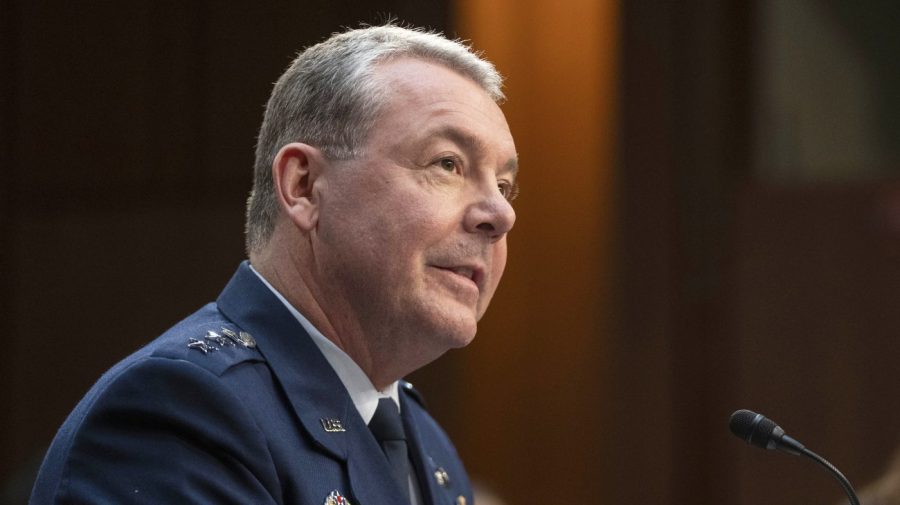Politics
Secretary of Defense Hegseth Dismisses DIA Director Lt. Gen. Kruse

Secretary of Defense Pete Hegseth has terminated Lt. Gen. Jeffrey Kruse from his position as the director of the Defense Intelligence Agency (DIA). This decision was confirmed by two sources familiar with the situation. A senior defense official, speaking on condition of anonymity, disclosed to The Hill that Kruse “will no longer serve” in this role as of now.
The exact reasons behind Kruse’s dismissal remain unclear. The DIA plays a crucial role in the U.S. military’s intelligence efforts, providing vital information and assessments to support national security operations. Kruse, who had been in charge of the agency since October 2021, was responsible for overseeing the agency’s mission of gathering and analyzing defense-related intelligence.
Impact on Intelligence Community
The termination of a high-ranking official such as Kruse can create ripples throughout the intelligence community. As the director of the DIA, he was instrumental in shaping intelligence strategies and ensuring that military operations were well-informed by relevant data. His removal could lead to shifts in priorities within the agency and affect ongoing intelligence projects.
Kruse’s tenure included a focus on modernizing the DIA’s capabilities and enhancing collaboration with other intelligence agencies. His experience and leadership were seen as pivotal during a time of evolving security challenges globally.
The transition in leadership raises questions regarding the future direction of the DIA. The appointment of a new director will be closely watched by both defense analysts and military personnel, as they seek to understand how new leadership might influence intelligence operations.
Context of the Dismissal
The decision to remove Lt. Gen. Kruse comes amid ongoing changes within the U.S. Department of Defense under Hegseth’s leadership. It reflects a broader strategy aimed at reshaping military intelligence structures to address contemporary threats. This dismissal aligns with a trend of evaluating and realigning senior military positions to ensure effective management and responsiveness to national security needs.
The Pentagon has faced scrutiny in recent years over its intelligence assessments, particularly in relation to emerging threats from state and non-state actors. As the U.S. navigates complex geopolitical challenges, the role of the DIA and its leadership becomes increasingly significant.
The department has not yet announced who will succeed Kruse as the head of the DIA. As the situation develops, stakeholders in the defense and intelligence sectors will be keenly observing the implications of this leadership change for U.S. military strategy and intelligence operations.
-

 Lifestyle4 months ago
Lifestyle4 months agoLibraries Challenge Rising E-Book Costs Amid Growing Demand
-

 Sports3 months ago
Sports3 months agoTyreek Hill Responds to Tua Tagovailoa’s Comments on Team Dynamics
-

 Sports3 months ago
Sports3 months agoLiverpool Secures Agreement to Sign Young Striker Will Wright
-

 Lifestyle3 months ago
Lifestyle3 months agoSave Your Split Tomatoes: Expert Tips for Gardeners
-

 Lifestyle3 months ago
Lifestyle3 months agoPrincess Beatrice’s Daughter Athena Joins Siblings at London Parade
-

 World3 months ago
World3 months agoWinter Storms Lash New South Wales with Snow, Flood Risks
-

 Science4 months ago
Science4 months agoTrump Administration Moves to Repeal Key Climate Regulation
-

 Science3 months ago
Science3 months agoSan Francisco Hosts Unique Contest to Identify “Performative Males”
-

 Business4 months ago
Business4 months agoSoFi Technologies Shares Slip 2% Following Insider Stock Sale
-

 Science4 months ago
Science4 months agoNew Tool Reveals Link Between Horse Coat Condition and Parasites
-

 Sports3 months ago
Sports3 months agoElon Musk Sculpture Travels From Utah to Yosemite National Park
-

 Science4 months ago
Science4 months agoNew Study Confirms Humans Transported Stonehenge Bluestones








